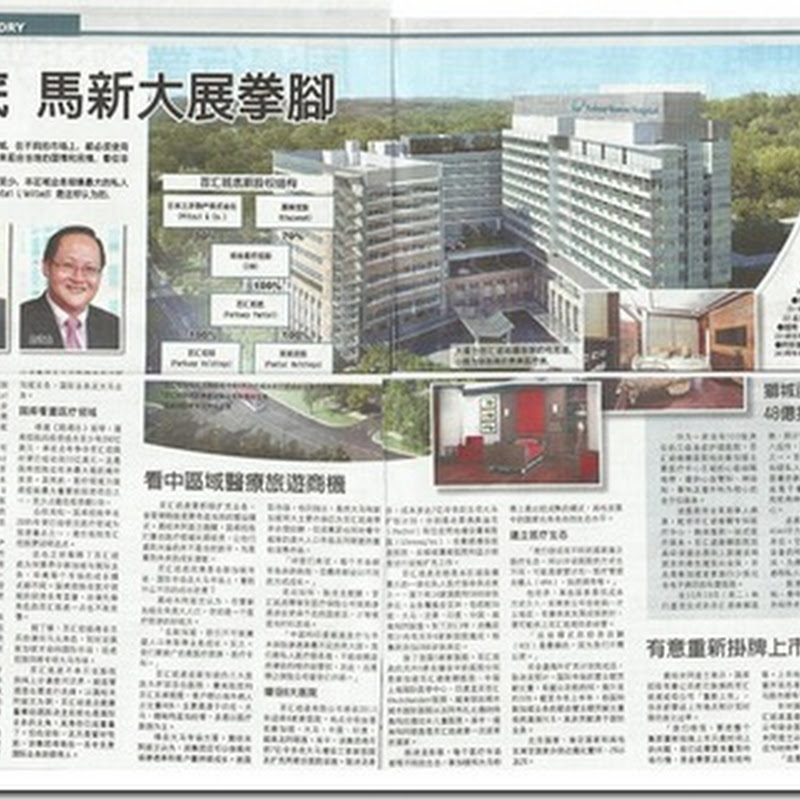KUALA LUMPUR: The move by two of the world's largest iron ore producers Vale SA and BHP Billiton Ltd in March to end the decades-old annual benchmark pricing system and raise iron ore and coking coal contract prices by 90% and 55% respectively in the second quarter (2Q) has lifted average selling prices (ASPs) of steel.
In a report on Tuesday, June 8, OSK Research said the move had put the market to another test as steel demand was seen falling in the past two months.
"Unlike the habitual reaction to price escalation, where traders normally rush to buy more in hopes of selling later at much higher prices, most traders have been adopting a wait-and-see attitude since April 2010," the research house said.
It added that the market may enter a more difficult phase in 3Q during which iron ore and coking coal prices were likely to go up by at least 15% based on the average spot price from March to May 2010.
The research house said although the ASPs of steel products were expected to dive after peaking in April 2010, the timing was "a bit earlier than anticipated".
It noted the combined factors of sovereign debt crisis in Europe, fears of war in Korea and continuing fiscal tightening in China had contributed to the acceleration of the drop in steel prices especially in the international market.
"While local players are trying hard to hold prices firm with steel bars quoted at above RM2,400 per tonne, we hear of rampant discounts being offered," OSK Research noted.
However, the research house said it remained upbeat on 2Q results of the local steel players although their actual performance might be capped by weakening ASPs.
It said the conclusion of the quarterly benchmarks had led to scrap metal price topping US$500 (RM1,660) per tonne although it had weakened to around US$400 level currently.
"We see material costs progressively averaging up as steel mills take delivery of more expensive scrap, mostly in 3Q, on incorporating a two- to three-month delivery time lag," added OSK Research.
With expectation of the steel prices upside being capped in the coming months since the market was not ready for too high a selling price, the "mismatch" between high material costs and lower ASPs looked set to narrow steel millers margin in the second half (2H).
With the recent developments reflecting its earlier concerns on 2H, OSK Research said it was increasingly becoming a believer in "bell-shaped earnings" for 2010.
"The murky outlook in the next two quarters also suggests that investors should avoid cyclical stock," said OSK Research while downgrading the steel sector to neutral.
Meanwhile, an analyst with a local broking firm said the outlook for the sector could still be bullish if there was a huge amount of funds pumped into the CONSTRUCTION [] and infrastructure sectors under the 10th Malaysian Plan (10MP) which would also incorporate the New Economic Model (NEM).
"The demand for steel may pick up in 4Q if the government have decisive efforts to stimulate the economy especially with projects that are still ongoing under the stimulus package announced in 2009," he said.
The analyst said the steel industry was adjusting production according to market forces and that steel millers were still very much in control of their earnings margin although some had cut production output due to direct exposure in China's market.
荒谬的GDP!
-
若一个国家以一年财政收入为基础來借贷,它可能是佔收入的30%至50%。例如美国2024年收入是4,9万亿美元,再借1,8万亿美元。那是入不敷出,赤字高达36%。但它们就以GDP
29.2万亿美元为基础,那只是6%。
以上只是一个比例,其实全世界政府都这样做。
大家想一想,若一个家庭五口,有二人工作。以GDP...
23 hours ago





















































No comments:
Post a Comment